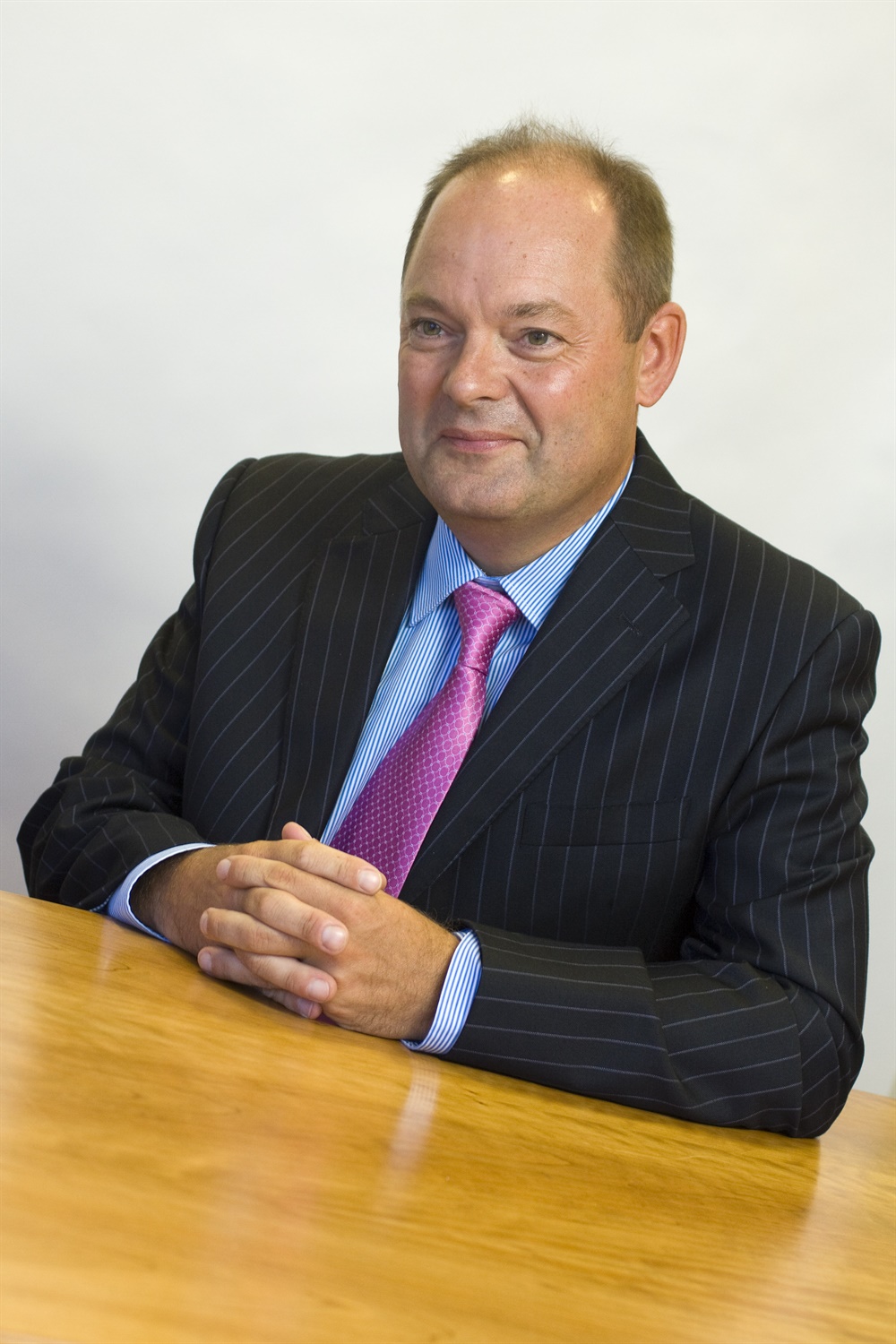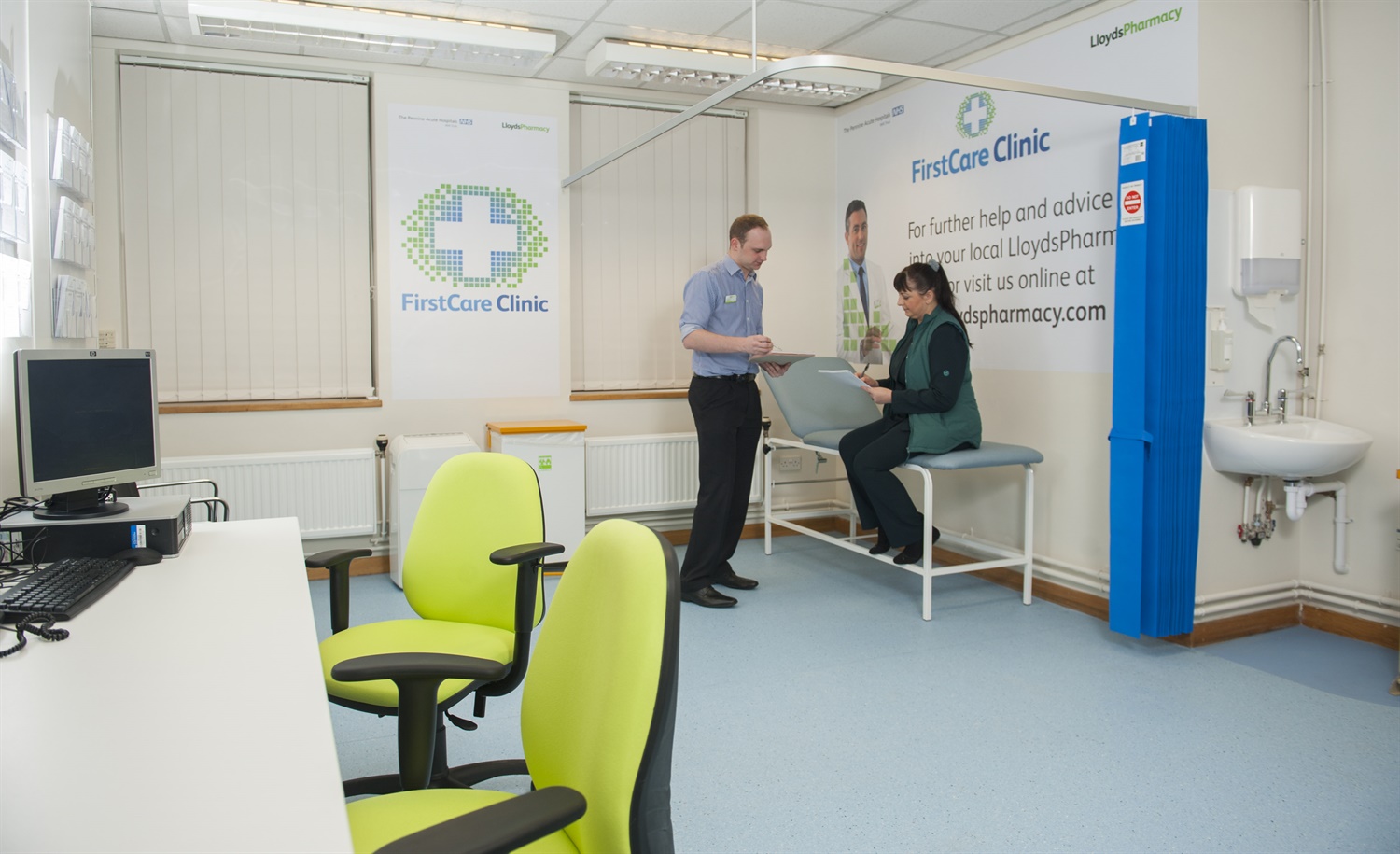01.04.15
Easing the pressure on A&E with pharmacy-led clinics
Source: NHE March/ April 15
Steve Howard, superintendent pharmacist at Lloyds Pharmacy, explains how a new pharmacy-led clinic is helping to treat patients at North Manchester General’s A&E department.
One in seven people who go to A&E for treatment could be seen by a GP in the community without the need for emergency department assessment, according to data collected by the Royal College of Emergency Medicine.
But reducing the pressure on A&E does not necessarily require GPs – as Pennine Acute Hospitals NHS Trust has been showing via its trial of an innovative pharmacy-led clinic in one of its A&E departments. Since the start of December, the first LloydsPharmacy First Care Clinic pilot has been providing patients with free treatment by a clinically trained pharmacist for minor injuries and common ailments at North Manchester General hospital.
Easing the A&E burden
The hospital’s A&E unit, which sees more than 100,000 patients a year, is one of the best in the country for meeting the four-hour emergency access standard. But in an effort to improve the service to patients and alleviate pressure on the emergency department, the clinic has been developed to explore and understand how pharmacy can form part of the solution.
Consultant Dr Jimmy Stuart, clinical director of urgent care at the trust, said: “Together we have developed care pathways for 21 minor ailments and injuries which can be treated by the LloydsPharmacy First Care Clinic and we’ll continue to build on these. We need to explore new initiatives and pathways such as working with pharmacists to see if they can become a part of the solution to the pressures facing A&E departments.
“The clinic enables us to refer appropriate patients to have their conditions efficiently and effectively treated; this could potentially free up the equivalent of two clinicians per shift who can concentrate on patients with more serious conditions. Pharmacy has an important role to play in bridging the gap between care in the community and secondary care, and is an important piece within the solution-jigsaw to the problems currently experienced by the NHS.”
The First Care concept isn’t brand new, as Dr Stuart alluded to, as the clinics have been trialled in three LloydsPharmacy stores in Coventry, Tolworth and Birmingham. During these pilots people were given an alternative to walk-in centres or GP surgeries for care.
Steve Howard (pictured), superintendent pharmacist at LloydsPharmacy, told NHE that feedback from its own trials has been very positive. And, prior to starting the A&E trial, LloydsPharmacy has been working with North Manchester General Hospital and the Royal Oldham Hospital as a community pharmacy partner, providing outpatient dispensing services.
 “We decided to trial an A&E clinic actually based in A&E to see if we could remove some of the pressures on the emergency department by triaging people to see a pharmacist, where appropriate, rather than clogging the system up,” said Howard.
“We decided to trial an A&E clinic actually based in A&E to see if we could remove some of the pressures on the emergency department by triaging people to see a pharmacist, where appropriate, rather than clogging the system up,” said Howard.
“From a patient experience perspective, having the pharmacy as part of A&E, seen to be part of A&E and integrated into the various triage systems that seems to have given it a much better chance of succeeding.”
Quick service
The clinic aims to see patients within 30 minutes of arrival and 15 minutes after triage. Originally, the clinic was set up to deal with 21 conditions, including minor burns, scalds, sore throats, bites and stings and earache.
Howard said: “We came up with the list and did some training with our pharmacists and health assistants who work there. We also did some advanced clinical training around the treatment around minor sprains, burns, scolds, re-dressing and suture removal.
“We went live just before the winter pressures started to bite. In the first week numbers were modest, but by week two these had doubled. I think, however, this was due to greater familiarity by the triage nurses but also an appreciation that pharmacy could contribute something quite useful.”
Patients aged over 16 attending A&E who are assessed by a triage nurse as having a minor injury or illness can choose treatment by a pharmacist. But there is no obligation – they can queue for normal A&E treatment instead.
But NHE was told that since inception, the clinic numbers have been steadily increasing and, overall, feedback has been positive.
Howard added that part of the reason LloydsPharmacy decide to pursue the trial was to both help with the A&E winter pressures but also to educate the public and others about the role pharmacy can play in the greater healthcare community.
“Ideally, though, you want people to stop getting to A&E in the first place with things that could be dealt with by a pharmacist rather than having them already there,” he said. “I think it is a balanced approach we have a taken to try to achieve this.”
The clinic was originally meant to run for 12 weeks, but this has now been extended and is being reviewed as it goes along. However, Howard is confident that the programme will run for at least another three months.
National initiative
The LloydsPharmacy and Pennine pilot comes at a time when NHS England is ramping up its work on the role pharmacists can play in A&E.
Led by Health Education England (HEE), the national emergency department pharmacy pilot, which started in early March, is “exploring the potential of clinical pharmacists working as part of a multidisciplinary approach to improving emergency care”.
The pilot programme, expected to run for five weeks, will see 53 trusts (full list below) involved with the work from across 12 of HEE’s Local Education and Training Boards.
This trial, led by HEE, is an evolution of a pilot which took place in the West Midlands from December 2013 to August 2014.
A HEE spokesperson told NHE: “These pilots are for trusts designed to identify opportunities to make effective use of pharmacists’ knowledge and skills, working with other key staff in emergency departments so that patients are seen and treated safely, effectively and in a timely manner.
“HEE will be looking to build on the West Midlands work to develop enhanced roles for pharmacists in emergency departments across the country that improve patient experience and support wider efforts to reduce waiting times.”
NHS Minor Ailments Service at pharmacies
Returning to the north west, though, and the lessons learned through the LloydsPharmacy pilot, Howard told NHE: “Everybody is working towards the common goal of delivering the best care and experience for patient.
“It is always more difficult with the first one, but if we were to do this again – and we are actively talking to other trusts about this – we would want to embed some of our early lessons about what things pharmacy could do more effectively.
“I think we were all a little conservative at the beginning, understandably so, wanting to get it right. The estimate was one in seven cases going to A&E that could be legitimately treated by a pharmacist.
“The list of 21 care pathways would probably be closer to 30 in a future iteration.”

On top of this, Professor Sir Bruce Keogh’s Urgent and Emergency Care Review recently recommended extending the NHS Minor Ailments Service to all community pharmacies.
Howard added that he would really to see the case a National Minor Ailments Scheme pushed forward in the future. “So many of these ailments could be treated by a community pharmacy without people going to GPs and without clogging up the A&E system,” he said. “We would absolutely support Bruce Keogh’s view about having a nationally commissioned service.”
Confirmed project trusts for the national emergency department pharmacy pilot:
Health Education South West:
- South Devon Healthcare NHS Foundation Trust
- North Bristol NHS Trust
- Royal United Hospitals Bath NHS Foundation Trust
- Great Western Hospitals NHS Foundation Trust
- University Hospitals Bristol NHS Foundation Trust
Health Education Wessex:
- Isle of Wight NHS Trust
- Poole Hospital NHS Foundation Trust
- University Hospital Southampton NHS Foundation Trust
Health Education Kent, Surrey and Sussex:
- Brighton & Sussex University Hospital NHS Trust
- Surrey & Sussex Hospital Healthcare Trust
- East Kent University Hospitals Healthcare Trust
- Dartford and Gravesham Hospitals Healthcare Trust
Health Education East Midlands:
- Chesterfield Royal Hospital NHS Foundation Trust
- Northampton General Hospital
- Royal Derby Hospital
- Nottingham University Hospital
Health Education Yorkshire and Humber:
- Sheffield Teaching Hospitals
- Bradford Teaching Hospitals NHS Foundation Trust
- Leeds Teaching Hospitals NHS Trust
- Doncaster and Bassetlaw Hospitals NHS Foundation Trust
Health Education East of England:
- Mid Essex Hospital Services NHS Trust
- The Luton & Dunstable Hospital NHS Foundation Trust
- Cambridge University Hospitals NHS Foundation Trust
- Norfolk and Norwich University Hospital NHS Foundation Trust
Health Education North West:
- East Lancashire Hospitals NHS Trust
- Central Manchester University Hospitals NHS Foundation Trust
- Tameside Hospital NHS Foundation Trust
- University Hospital of South Manchester NHS Foundation Trust
- Warrington and Halton Hospitals NHS Foundation Trust
- East Cheshire NHS Trust
- Aintree University Hospital NHS Foundation Trust
- Wrightington, Wigan & Leigh NHS Foundation Trust
- Lancashire Teaching Hospitals NHS Foundation Trust
- Wirral University Teaching Hospital NHS Foundation Trust
Health Education Thames Valley:
- Buckinghamshire Healthcare NHS Trust
- Heatherwood and Wexham Park Hospitals (part of Frimley Park NHS Foundation Trust)
- Milton Keynes Hospital NHS Foundation Trust
Health Education North Central and East London:
- North Middlesex University Hospital NHS Trust
- Royal Free London NHS Foundation Trust
- East London NHS Foundation Trust
- Barking Havering and Redbridge University Hospitals NHS Trust
- Barts Health NHS Trust
Health Education South London:
- Croydon Health Services NHS Trust
- St George’s University Hospitals NHS Foundation Trust
- King's College Hospital NHS Foundation Trust
Health Education West Midlands:
- University Hospitals Birmingham NHS Foundation Trust
- Burton Hospitals NHS Trust
- South Warwickshire NHS Foundation Trust
Health Education North East
- South Tees NHS Foundation Trust
- Newcastle upon Tyne Hospitals NHS Foundation Trust
- County Durham and Darlington NHS Foundation Trust
- City Hospitals Sunderland NHS FT
- Northumbria Healthcare NHS FT
Tell us what you think – have your say below or email [email protected]